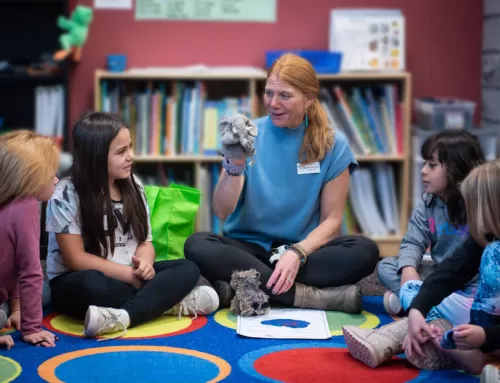Conversations with both parents and teachers these days seem consumed with what to do about kids and their devices. From a neurodevelopment perspective, the answer is simple. Put them away unless you absolutely need them!
Observationally, when a preschooler arrives at the beginning of the day glued to his parent’s smartphone, after the parent leaves (with the phone) that child takes a good forty minutes to settle in. Fussy, fidgety, and fooling around. And then, when he is picked up at the end of his day, and immediately handed the phone with the admonishment “Hurry up. We have to get going.” one has to wonder what he is learning. And this happens all the time!
If we put aside his behavior after the phone is taken away and just look at what is happening in his brain, it is sobering. FocusedKids’ primary goal is to provide activities to children, parents, and teachers that promote the development of the executive function. In a recent article, Mark Bertin, MD, stated “Executive function is like the CEO of our lives. Anything regarding organization, planning, anticipating, focusing, and regulating behavior relies on executive function. Healthy development of executive function in early childhood has even been linked to life-long academic and social success.”
In the example above, the preschooler is learning to rely on the phone as a pacifier for all of these critical functions. As long as his phone is in front of his face, he is focused and behaving and is probably even learning a bit about organizing, planning, anticipating. So isn’t device-time a good way to instill executive function?
Dr. Mark Bertin, in the linked article above, provides current information on the negative impact of too much device-time on the developing brain.

Want More Calm & Connection at Home?
Participate in a FocusedKids parent workshop and discover skills that will allow you to create a household full of calm, connection, and collaboration.
Four Negative Impacts of Phone Addiction
Technology is a tool; it is not inherently good or bad. To keep it in a healthy place in our lives requires skillful use. Unlike passing trends that scared parents over the years, research shows poorly monitored screen time bluntly impacts kids for the worse. (Rock and roll was never shown to affect child development in any real way; it isn’t evil, as it turns out.) Well moderated activities may augment learning, but hundreds of studies show that when devices drive their own use, consequences follow. A few examples include:
- Short- and long-term attention and executive function suffer. Laser-like attention towards a screen is an illusion; kids remain engaged because their attention constantly, actively shifts. That’s why it’s fun. Increased time in front of screens has been linked to long-term worsening of focus. Short-term use—like playing games on the school bus—has been linked to immediate decreases in executive function.
- Sleep becomes disrupted. Studies show we all benefit from at least an hour without screens prior to bed. If you’re someone who falls asleep with the TV, you’re distracting yourself from restlessness but probably not helping yourself fall asleep.
- Screen time can interfere with language, communication, and other forms of social engagement. Background television in homes has been linked to shorter social interactions. Even just having a phone on the table in a conversation has been shown disruptive. “Educational” DVDs used in one study not only failed to work—they caused language development to slow. Particularly in younger children, screen time should be an opportunity to engage, not disengage, with others.
- Screen time breeds behavioral difficulties. One study showed nothing more than cutting inappropriate media content in preschool homes leads to better school behavior. In another, violent video games in teens were shown to decrease activity in parts of the brain that respond to violence. Of course, not every child playing video games gets swayed, but over any group of children, there seems to be an influence.
So what to do? It isn’t rocket science. Adults need to be in charge. That means they need to control their own media diet and those of the children in their lives. Easier said than done, as we are talking about addiction. But if this message has your attention, please read the article for a few concise ways to promote not only the healthy development of your child’s brain and also to instill the critical skills of self-regulation.

Subscribe to the FocusedKids Newsletter
Make life a little more workable for you and the children you care for. Get mindful resources and tips from the FocusedKids trainers deliver to your inbox.
About the Author
Kathy Hegberg
Kathy is the founder of FocusedKids. With a background as a child and family therapist, Kathy has thousands of hours working with children and their families. She recently transitioned from the position of Executive Director and now serves on the board of FocusedKids.



